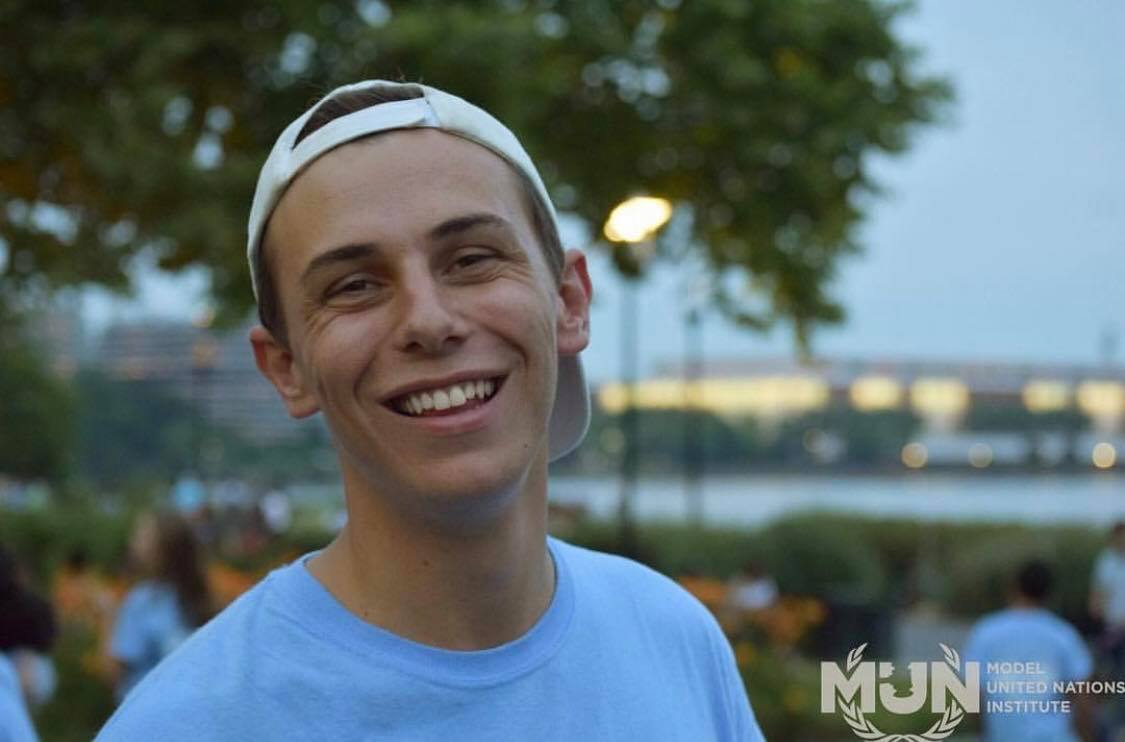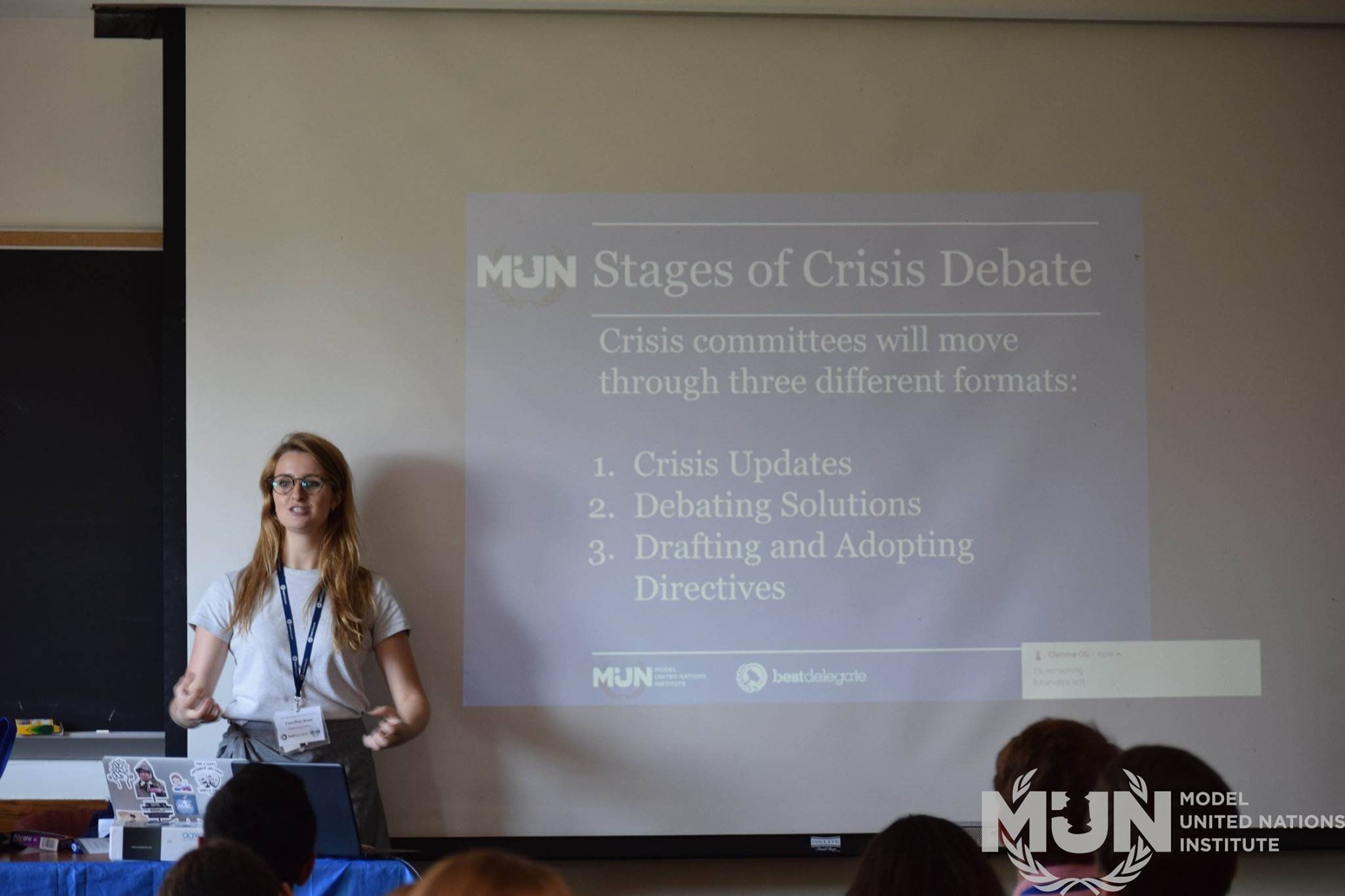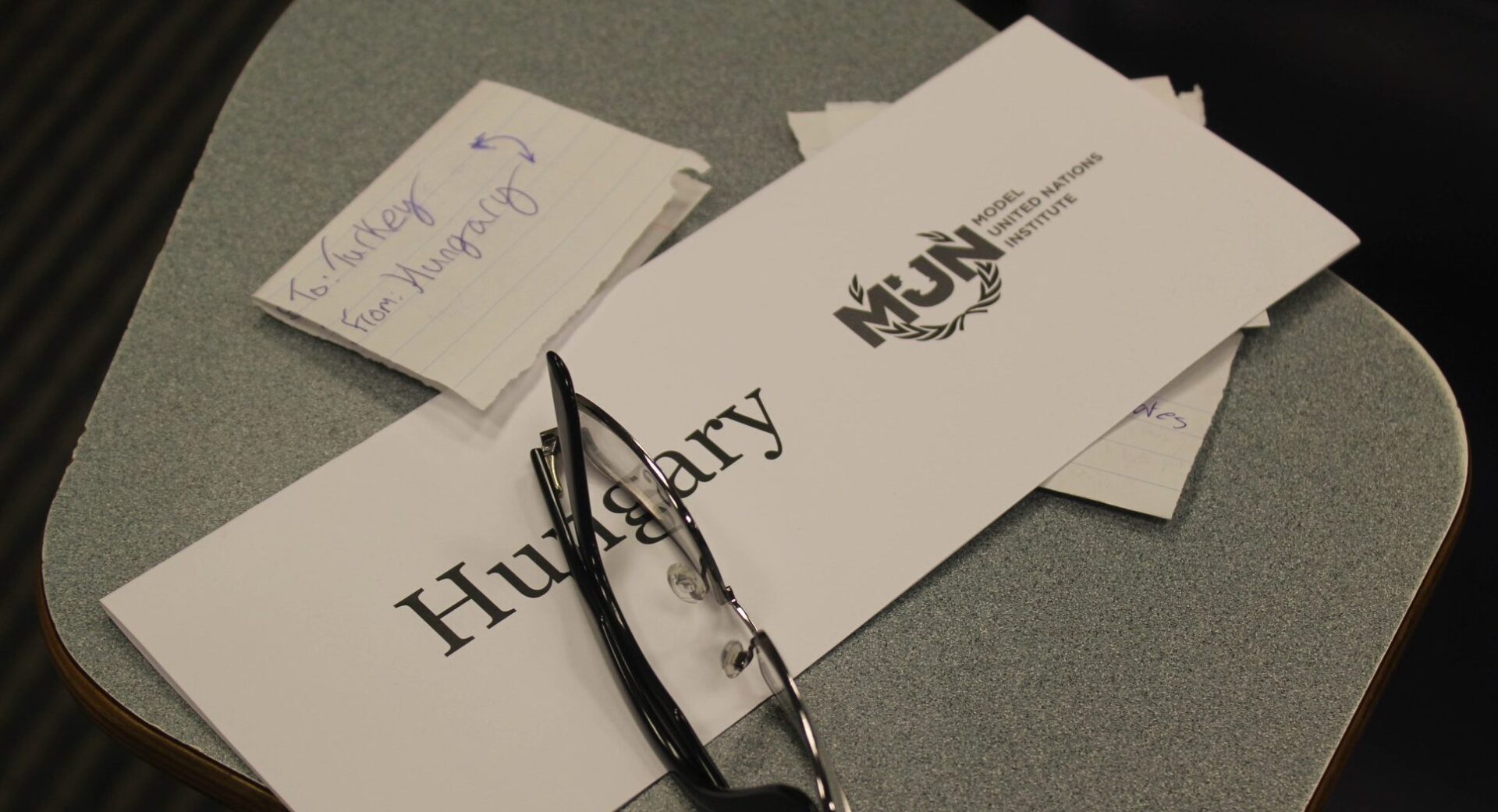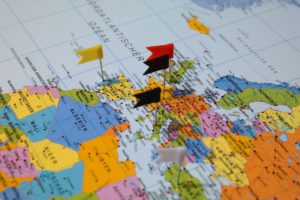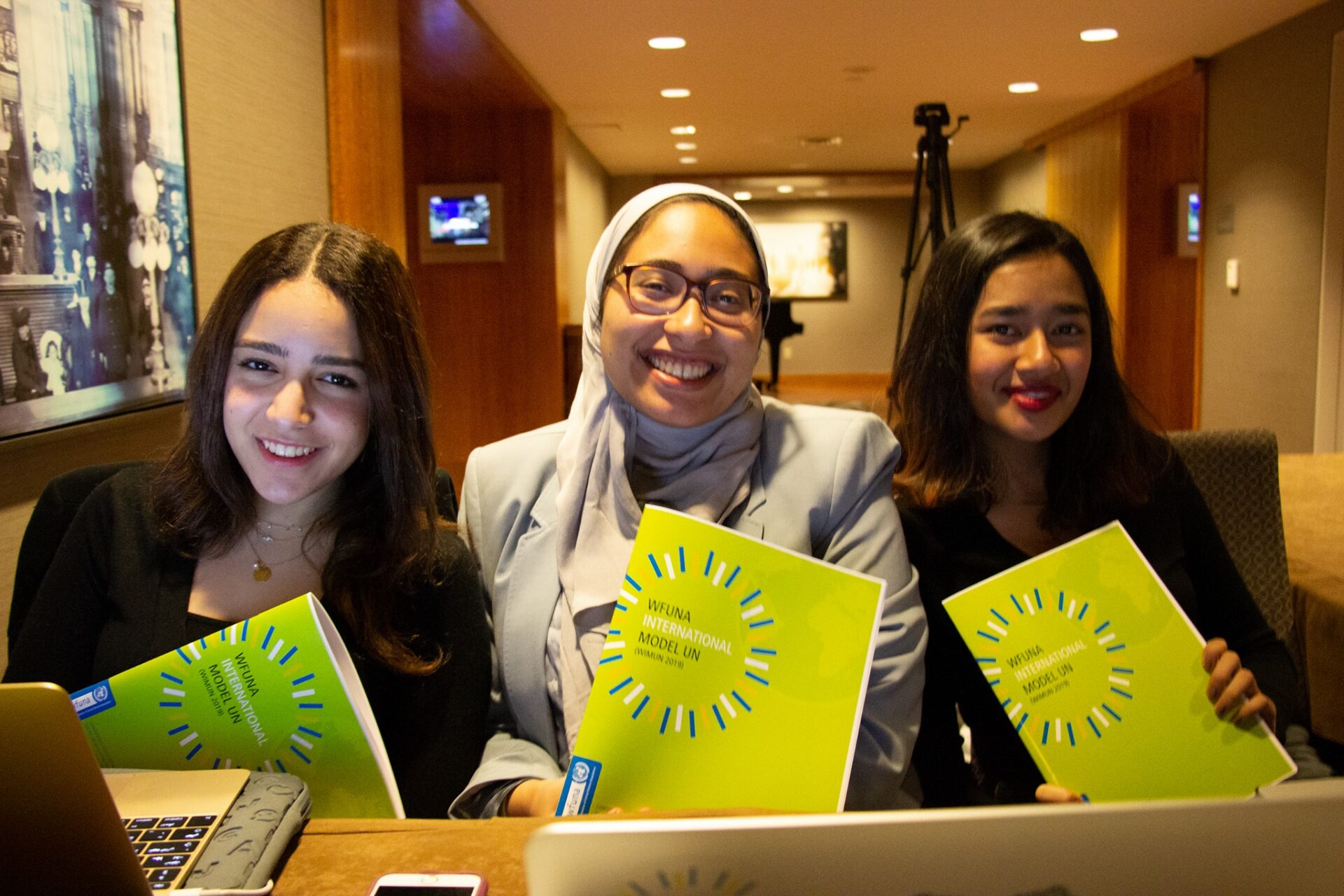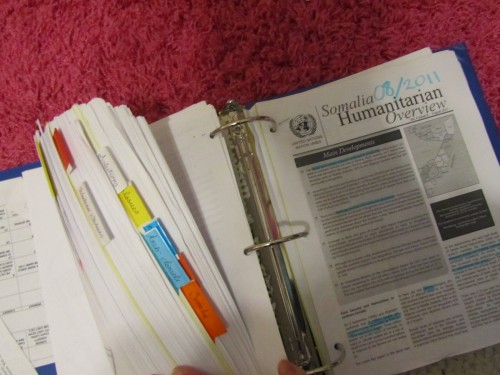
Hey Best Delegate readers – Happy New Year!
2018 brought many amazing experiences for the Best Delegate team, and we wanted to take this opportunity to share with you what our year looked like, and to thank everybody that made it possible. You likely know that Best Delegate runs a Model UN website, but each year Best Delegate also works with thousands of incredible students and teachers around the world, and we want to showcase these experiences here.

Inside Out Education Workshop in Shanghai, China
Student Workshops in the US, China, Panama, and Honduras
Best Delegate kicked off our workshops for the year in Shanghai, China. Best Delegate Marketing Manager Conna Walsh, joined by former MUN Institute Mentors Lizzy Burke and Elodie Currier, went out to China for two weeks to work with elementary and middle school students from Inside Out Education on their Model UN skills.
In March, Outreach Director Aaron Kalafarski went out to Texas A&M University to help them prepare for their upcoming MUN conferences and build a new MUN program at the school.
During the summer, Best Delegate Director of Operations Erik Leiden, along with Aaron and former Diplomacy Fellow (and MUNI alumna!) Angela Hou led a workshop in Washington, D.C., for students from China traveling with TalentsJoin Education.

Students at the Best Delegate workshop at the Escuela Internacional Sampredana in San Pedro Sula, Honduras
In the Autumn, Director of Operations Erik Leiden went out to the International School of Panama (ISP) to work with the teachers and students who lead PANAMUN, one of the largest Model UN conferences in Central America. Erik also worked with teachers at ISP to make Model UN part of their fifth grade Social Studies curriculum!
During that same week, Conna and MUNI Program Director Katrina Stevenson went to San Pedro Sula, Honduras, for a workshop with the students and teachers at the Escuela Internacional Sampedrana (EIS). EIS went on later in the year to win Best Small Delegation at Yale Model Government Europe in Budapest! (Go Bulldogs!)
Director Institutes in Qatar, The Netherlands, and Singapore

Above: King Willem-Alexander at the Opening Ceremonies of the 50th Anniversary of THIMUN. {Photo from Aqua Fortis Media)
Each year, Best Delegate also leads a series of trainings for Model UN Faculty Advisors at conferences hosted by The Hague International Model United Nations (THIMUN) around the world. In January, Best Delegate Co-Founder Ryan Villanueva attended THIMUN Qatar in Doha, Qatar, which is the largest Model UN conference in the Middle East. The following week, Erik lead a Director Institute at THIMUN in The Hague, Netherlands. This year was the 50th anniversary of THIMUN, which lead to some awesome surprises for attendees- including a keynote speech by the King of the Netherlands, Willem-Alexander, who is a former THIMUN delegate!
In October, Erik and Ryan went to the Qatar Leadership Conference (QLC) to lead the Director Institute in Doha, Qatar. During QLC, directors also have the opportunity to step into the shoes of their delegates and debate in their own Model UN committee; this year they debated “Access to Quality Teachers in LDCs.” Over Thanksgiving, Best Delegate Co-Founder Kevin Felix Chan went to THIMUN Singapore to run Best Delegate’s final Director Institute of the year at the largest conference in Southeast Asia.
Don’t forget that Best Delegate hosts a wealth of resources and information for MUN advisors and teachers around the world on our MUN Education platform – check it out today!
Conferences in New York City, California, and Northeast India

Above: MyMUN CEO Robin Schoss awarding WFUNA Secretary-General Bonian Golmohammadi with the “Best Large Conference” award at the WIMUN 2018 Opening Ceremonies in the United Nations General Assembly Hall (Photo from WFUNA)
In February, Best Delegate partnered with the World Federation of United Nations Associations (WFUNA) to host WFUNA International Model United Nations (WIMUN), a conference using actual United Nations rules of procedure to create the most accurate simulation of the United Nations in the world. 2018 was a banner year for WIMUN- not only was this the first year that WIMUN passed 1000 participants (from over 60 different countries!), but WIMUN was also recognized as the Best Large Conference globally based on the highest score among reviewers on MyMUN. This year the Secretary-General was Angela Hou (China/Canada), a former MUNI student and Diplomacy Fellow, who ran the conference along with her Senior Secretariat: USG DPI Ibrahim El-Kazaz (from the US and Egypt, now a member of the Best Delegate full-time team), ASG DPI Candice Woods (Australia), USG DGACM Elena Kisileva (Russia), ASG DGACM John Masangkay (Canada), and President of the General Assembly Nikhil Goyal (India). WIMUN 2019 will be from January 30th to February 2nd – click here for more info!
In the Autumn, Best Delegate also partnered with the Contra Costa County Office of Education to organize CCCMUN, a Model UN conference for 400 students from Contra Costa County California schools. Special thanks to Evan Wesley from the Thirst Project for coming out as the Keynote Speaker, and to Secretary-General Romae-Anne Aquino and the UC Davis MUN team for staffing the event and creating an awesome experience for the students in attendance!
In November, Ibrahim also flew out Northeast India to train staff and help lead Northeast India International Model United Nations (NEIMUN) for 300 students from across the seven Northeast States in India. This year the conference was hosted in Dimapur, Nagaland- thanks to the NEIMUN Senior Secretariat for putting on an awesome event!
In addition to helping organize these three conferences, we also took the exciting step this year of publicly launching our newest Model UN experience for students – the Best Delegate Model United Nations Conference (BDMUNC). We’ll be hosting our own Model UN conference in Washington, D.C., from March 14-17. BDMUNC will be a new kind of Model UN conference. In the lead-up to the conference, delegates and advisors will be led through a step-by-step training process to help them prepare. Once at the conference, delegates will receive training and learn about their topic directly from international organizations that work on these issues – this year, UNICEF-USA, the UN Office on Drugs and Crime (UNODC), the Thirst Project, and the Council on Foreign Relations (CFR) have partnered to create awesome materials and train delegates about issues these organizations work on every day. And at the end of the conference, every student in attendance will receive not just a score report but also specific feedback from their Chair on how to improve. Interested in BDMUNC? Find out more here!
Education for Justice: Vienna Workshop with the United Nations Office on Drugs and Crime

Group Photo at the Education for Justice Model United Nations Workshop in Vienna, Austria. (Photo from Andrew Newman)
In May, Ryan Villanueva attended the Commission on Crime Prevention and Criminal Justice at the UN Offices in Vienna, Austria. The following week Ryan, Erik, and Best Delegate Partnerships Director Laurabeth Goldsmith served as the trainers for the United Nations Office on Drugs and Crime (UNODC) Education for Justice Model United Nations workshop in Vienna. This workshop brought together the leaders of the largest Model UN conferences in the world to work side-by-side with UNODC staff to create plans for promoting the work of UNODC throughout their regions. Attendees at the workshop were the leaders of Model UN conferences in 28 different countries across North and South America, Europe, Africa, and Asia annually, and serve as the hosts to over 50,000 students each year. Want to learn more about how to discuss UNODC Mandates at your conference and partner with the organization? Click here!
Model United Nations and IDEA Public Schools

The 2018-2019 IDEA Model United Nations Fellowship Class
Since 2015, Best Delegate has partnered with IDEA Public Schools, a charter school network headquartered in the Rio Grande Valley in Texas, to help create Model UN programs throughout IDEA schools. This summer, Best Delegate selected a group of 10 “Model United Nations Fellows”, recent IDEA High School graduates, to continue driving these efforts as they head to college. These Fellows were training at Austin College, Texas this past June, and spent the rest of 2018 to expand Model UN throughout their alma maters. These IDEA Fellows have been able to start new Model UN programs at 5 new high schools and 1 new middle school and will serve as the Senior Secretariat for a brand-new IDEA- and Best Delegate-hosted conference, IDEAMUN, this upcoming March.
The Model United Nations Institute

One of MANY weeks of the Model United Nations Institute!
Best Delegate’s flagship event each year is our Model United Nations Institute, our summer Model UN camps for high school and middle school students. This year was the biggest and best year yet for MUNI. With 870 MUNI delegates from around the world, Best Delegate lead programs on the campuses of Austin College, Georgetown University, Columbia University, Harvard University, University of California, Los Angeles, and U.C. Berkeley.
MUNI 2018 was lead by Katrina and Erik, along with an awesome team of college students from around the world, including:
- Program Manager Richard Zhao (University of Toronto)
- MUN Mentors, including:
- Nicole Arski (McGill University)
- Madeleine Northfield (McGill University)
- Devansh Agarwal (University of Virginia)
- Robin de Zeeuw (Erasmus University)
- Jennifer Min (Syracuse University)
- Akash Kapoor (UCLA)
- Sam Taglia (Ohio State University)
- Caroline Rose (America University / London School of Economics)
- Syed Fuad Adnan (Florida International University)
- Curan Vanderwielen (Clark University)
- Mustafa Hassoun (Emory University)
- Residential Counselors, including:
- Lucy Stan (Colgate University)
- Jacob Harwas (University of Pittsburgh)
- Logan Smith (University of Miami)
This year, the MUN Institute will be hosted at more campuses and for more weeks than ever before, and registration is open! Click here to find out more!
———————
We’re thankful for all the awesome students, teachers, parents, partners, and staff that allowed us to work with thousands of amazing students from around the world this year and are excited to continue Bringing Out the Best in even more delegates as we enter 2019. Thank you to everybody that helped makes this year possible!

The Best Delegate Team during our staff retreat in Chiang Mai, Thailand (August 2018)















